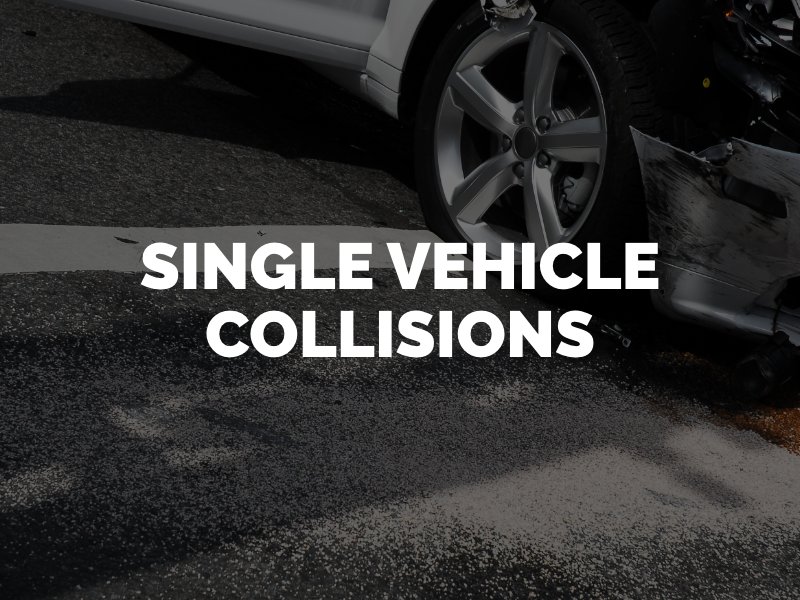Single-Vehicle Car Accidents
As the name suggests, a single-vehicle car accident involves only one car and driver. It does not describe a collision between two vehicles, but a crash where one driver strikes a fixed object, veers off the road or rolls over. Single-vehicle car accidents can cause immense damage. Unfortunately, it can be difficult for a victim to recover compensation for this type of wreck. These cases can be complicated and may require help from a Los Angeles car accident attorney.

Common Causes of Single-Vehicle Car Accidents in California
A car accident involving a single vehicle can occur for a variety of reasons. Unlike a traditional car accident case, liability – or legal responsibility – for the accident will not involve the actions or negligence of a second driver. However, it may involve various factors outside of the vehicle, such as road conditions and the environment.
Common causes of single-vehicle accidents include:
- Potholes and other road defects
- Debris or objects in the road
- Dangerous roadside construction zones
- The vehicle rolling onto its side or roof
- Collisions with trees or fixed objects
- Speeding, especially around curves
- Falling asleep behind the wheel
- Driving while distracted
- Texting and driving
- Distractions caused by passengers or pets
- Drunk or drugged driving
- Defective auto parts or equipment breakdowns
- Bad weather
- Animals crossing the road
If the driver of the motor vehicle is less than 100 percent at fault for the accident, he or she could still recover at least partial financial compensation under California’s pure comparative negligence law. The driver’s specific legal options will depend on the other cause(s) of the accident and which third parties, if any, can be held accountable.
Can I Hold Someone Else Liable for a Single-Vehicle Car Accident?
It is easy to assume that single-vehicle accidents are the sole fault of the person driving the vehicle; however, many cases also involve third-party liability, meaning to hold someone who was not present at the scene of the accident responsible for playing a part in causing or contributing to the crash.
If a road in California had a dangerous defect, for example, the state or federal government in charge of roadway maintenance could be held accountable for a related single-vehicle accident. If the car contained a defect, such as bad brakes, that contributed to the crash, the product manufacturer could be held liable.
An investigation into the single-vehicle car accident will be done to identify all contributing factors. If another party besides the driver is even partially to blame, the injured accident victim could be eligible for financial compensation from that party’s insurance provider.
Does My Insurance Cover Single-Vehicle Accidents?
The answer to this question will depend on the circumstances, such as the cause of the accident and the type of insurance coverage you have on your policy. In California, legally required automobile insurance does not include first-party coverage, such as collision or comprehensive insurance.
After a single-vehicle accident, call the police to request an official report. Law enforcement will help you document the crash and prove to an insurance company that the damage (and any injuries) occurred the way you say they did. This can be especially important in a single-vehicle accident case since there may not be witnesses to support your story.
Then, contact your car insurance company to ask if you have first-party insurance that can help pay for your medical bills and property repairs. Finally, contact an attorney to explore other options, such as holding someone else at least partially responsible for your losses. This can increase your financial recovery and help you move forward.
To consult with an attorney about a recent single-vehicle accident in Southern California at no cost or obligation, contact Rose, Klein & Marias, LLP for a free case review.
